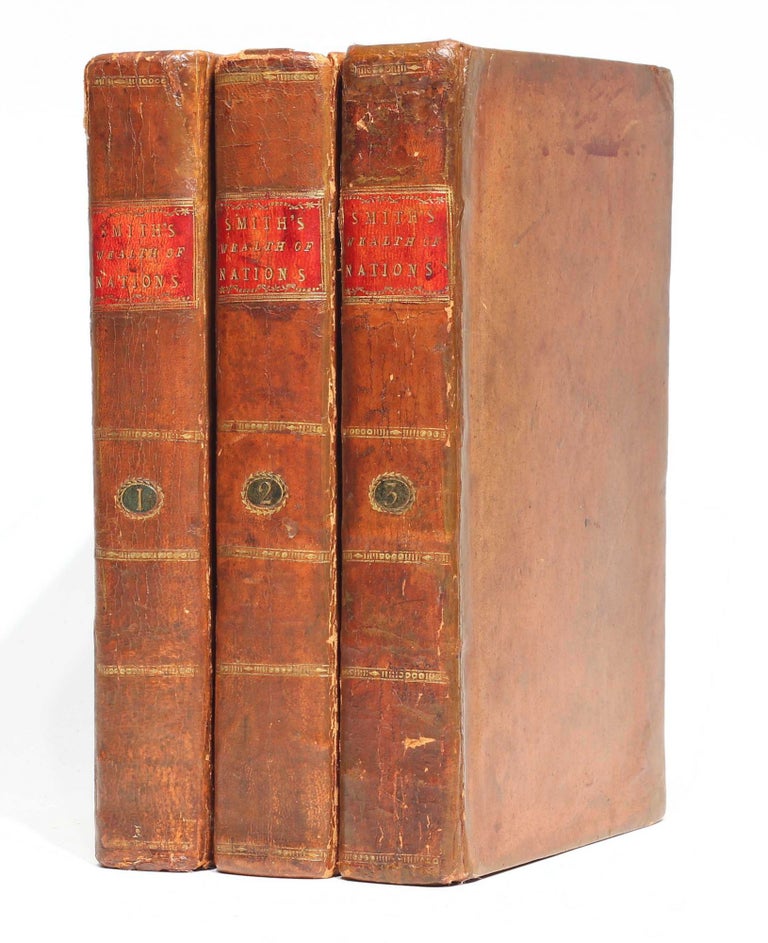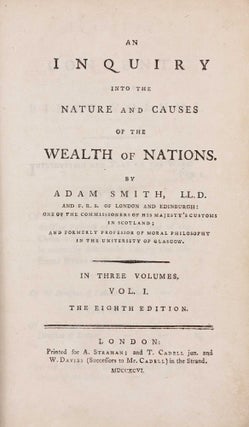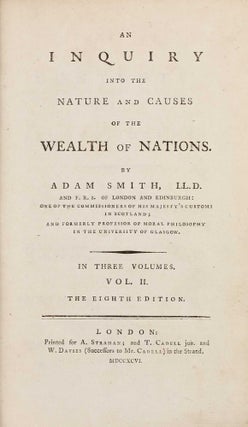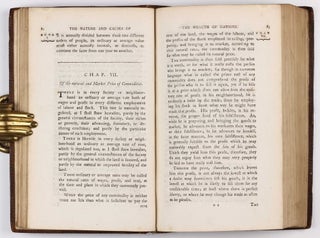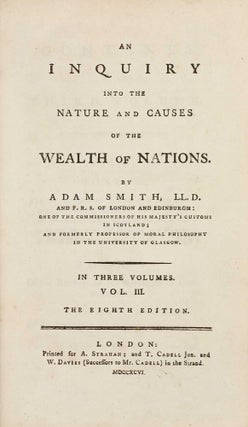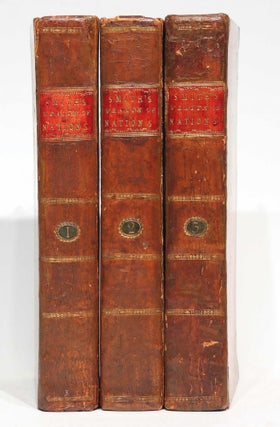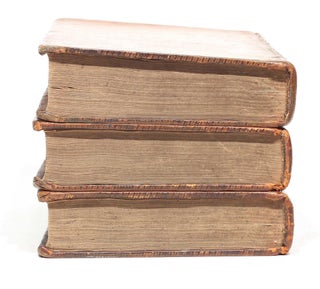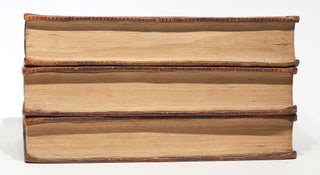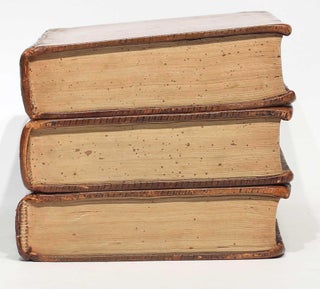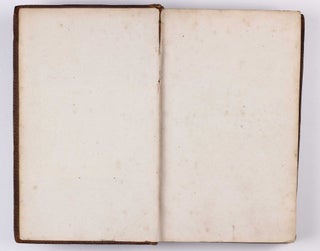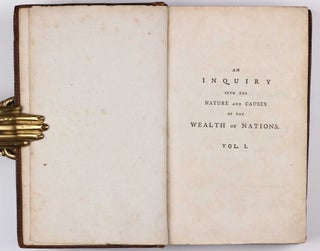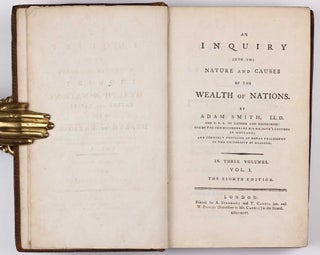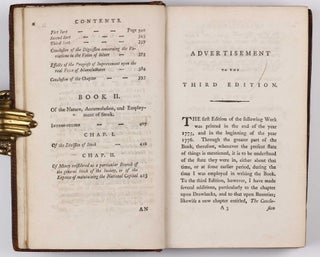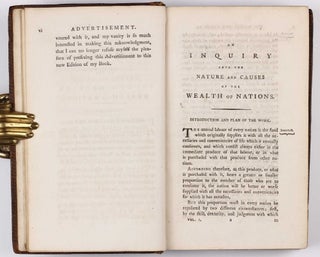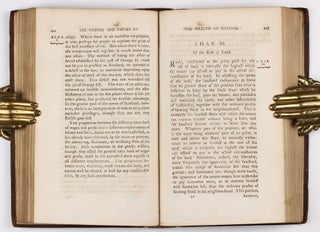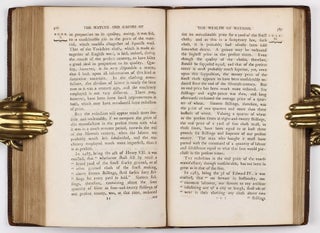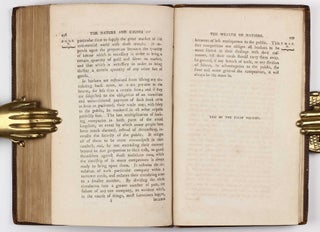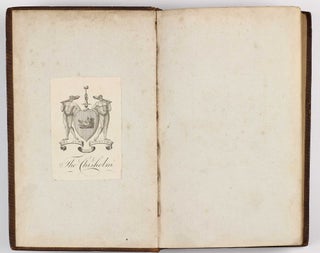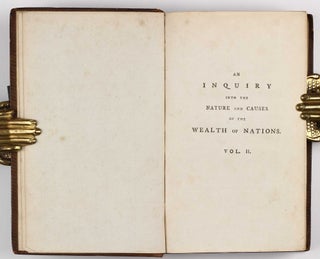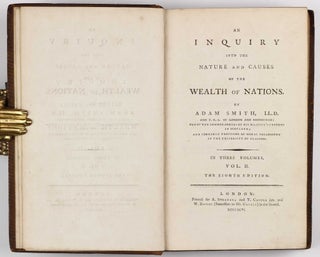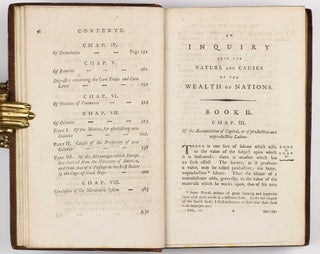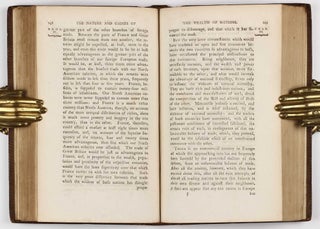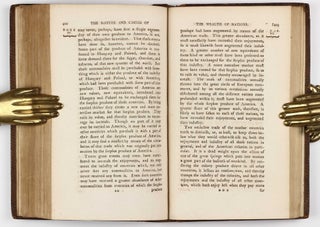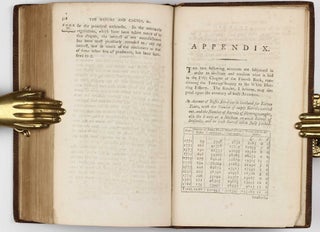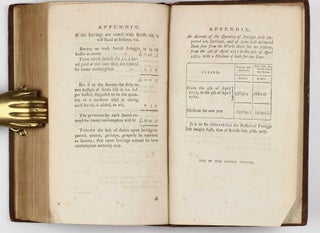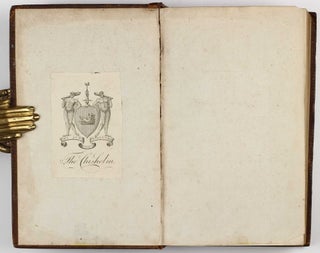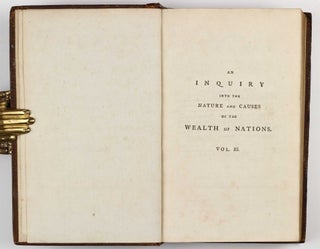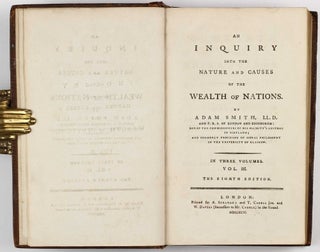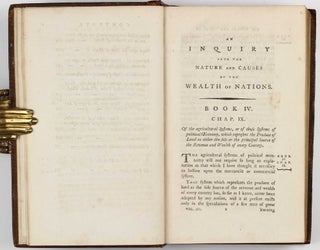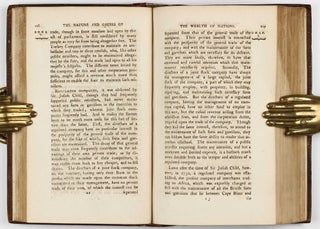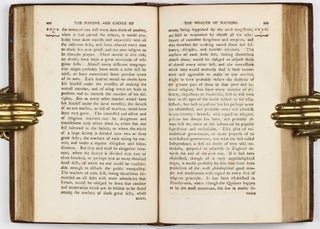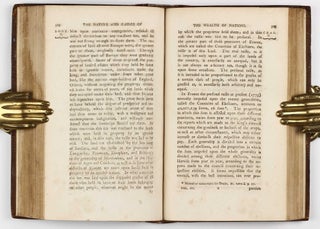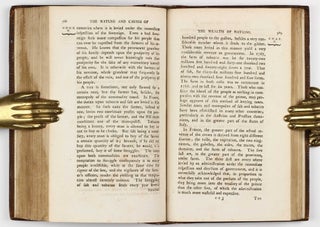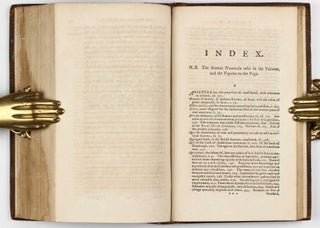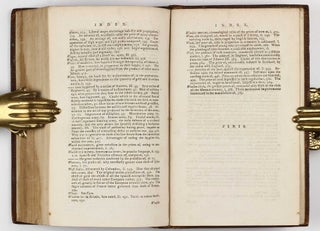An Inquiry into the Nature and Causes of the Wealth of Nations.
London: Printed for A. Stahan, and T. Cadell Jun. and W. Davies (Successors to Mr. Cadell), 1796.
8th Edition. Hardcover. Very Good. Item #003129
Three volumes. 8vo (213 x 130 mm). [2], x, 499 [1]; [2], vi, 518, [6]; vii [1], 465 [1], [50] pp., including half-title to each volume, appendix to vol. II, general index at end of vol. III. Bound in contemporary full sheep, smooth spines with gilt-lettered red morocco labels, green circular morocco numbering pieces, gilt bands (spines and extremities slightly rubbed, minor repair to spine ends and hinges, corners somewhat bumped). Internally clean with very light even browning and occasional very minor spotting. Provenance: The Chisholm (bookplate to front pastedown of each vol.); Peter Harrington bookseller (label loosely inserted). A very pretty set in original bindings. ----
Goldsmiths' 16558; cf. PMM 221 (for first edition). - EIGHTH EDITION, which reprints the introductions to the third and fourth editions. Adam Smith (1723-1790) spent ten years in the writing and perfecting of The Wealth of Nations. "The book succeeded at once, and the first edition was exhausted in six months ... Whether it be true or not, as Buckle said, that the 'Wealth of Nations' was, 'in its ultimate results, probably the most important that had ever been written' ... it is probable that no book can be mentioned which so rapidly became an authority both with statesmen and philosophers" (DNB). "The history of economic theory up to the end of the nineteenth century consists of two parts: the mercantilist phase which was based not so much on a doctrine as on a system of practice which grew out of social conditions; and the second phase which saw the development of the theory that the individual had the right to be unimpeded in the exercise of economic activity. While it cannot be said that Smith invented the latter theory ... his work is the first major expression of it. He begins with the thought that labour is the source from which a nation derives what is necessary to it. "The improvement of the division of labour is the measure of productivity ... Labour represents the three essential elements - wages, profit and rent - and these three also constitute income. From the workings of the economy, Smith passes to its matter 'stock' which encompasses all that man owns either for his own consumption or the return it brings him. The Wealth of Nations ends with a history of economic development, a definitive onslaught on the mercantile system, and some prophetic speculations on the limits of economic control. Where the political aspects of human rights had taken two centuries to explore, Smith's achievement was to bring the study of economic aspects to the same point in a single work. The Wealth of Nations is not a system, but as a provisional analysis it is completely convincing. The certainty of its criticism and its grasp of human nature have made it the first and greatest classic of modern economic thought" (PMM). - Visit our website for additional images and information.
Price: 2,800 € * convert currency
Delivery time up to 10 days. For calculation of the latest delivery date, follow the link: Delivery times
Lieferzeit max. 10 Tage. Zur Berechnung des spätesten Liefertermins siehe hier: Lieferzeiten


